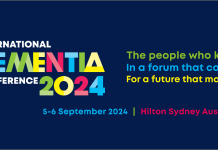An Australian serious incident mandatory reporting scheme for abuse and psychological harm – including from other residents – will take effect from April 1.
Laws to enact the Australian Government’s proposed Serious Incident Response Scheme are due for final debate from tomorrow (Feb 2) ahead of the expected rollout by April 1.
The SIRS legislation requires providers of residential care or flexible care to manage incidents and take “reasonable steps” to prevent them.
Prime Minister Scott Morrison told the Press Club today aged care would be a key issue in this year’s budget.
“This year’s budget we will deliver the government’s response to the Aged Care Royal Commission’s final report,” Mr Morrison said. “The key focus of our response to the final report will be growing and upskilling the aged care workforce. Workforce challenges are some of the biggest challenges Australia faces economically.”
When introducing the SIRS bill to parliament Aged Care Minister Richard Colbeck said it would set a stronger measure to prevent elder abuse.
“The Australian Government’s quality reform agenda is strengthening protections and improving delivery of safe, quality care,” Mr Colbeck said.
“Prioritising implementation of the SIRS is part of the Government’s rapid response to the Aged Care Royal Commission’s recommendations into COVID-19 to increase protection for residents.
“It will require aged care providers to manage all incidents, with a focus on the safety and wellbeing of people in aged care. Importantly, providers will need to put measures in place to prevent similar incidents from reoccurring.”
This includes by implementing and maintaining an incident management system in compliance with the Quality of Care Principles. The new system will be Overseen by the Aged Care Quality and Safety Commission.
Commissioner Janet Anderson said the incoming scheme would require the reporting of a broader range of incidents than the current compulsory reporting requirements.
“[Providers will require] effective systems and processes in place to minimise and manage these incidents,” she said in a statement.
“Other reportable incidents under the scheme will include neglect, psychological and emotional abuse, and inappropriate use of physical or chemical restraint.
“Incidents of abuse and aggression between consumers will be in scope for reporting, including where the resident who is alleged or suspected of having committed, or actually commits, the incident has a cognitive or mental impairment.”
She said providers processes would have to be up to date with an effective incident management system.
This includes processes and procedures to support providers and staff to take action when there is an alleged, suspected, or witnessed incident.
She said this could include the identification and immediate internal reporting of the allegation or witnessed incident, action to remove people from harm and to reduce other impacts, documenting the incident, additional investigations if necessary, and reporting to the authorities – including police and the Commission – within the statutory timeframes.
She called for all residential aged care providers to act now to review and strengthen their existing incident management system ahead of the new laws.
A reportable incident has been defined under the new laws. According to the Serious Incident Response Scheme it is unreasonable use of force, unlawful sexual contact, or inappropriate sexual conduct, psychological or emotional abuse , unexpected death, stealing or financial coercion, neglect, use of physical or chemical restraint, and the unexplained absence of the resident.
The Productivity Commission’s report into government services noted the rate of reportable incidents for those in residential aged care was 2.3 per cent in 2019-2020.
There were also 1301 notifications of missing persons.
Overall in the same year there were almost 184,000 older Australians in residential care, with more than 244,000 receiving some residential care during the year.
Average age at entry was 82.5 years for men and 84.8 years for women, with an average stay of just under three years.
Updated 22nd March, 2021. Aged Care Operators are advised that they need to be reporting incidents under the new Serious Incident Response Scheme from next Thursday 1 April – https://www.agedcarequality.gov.au/sirs










